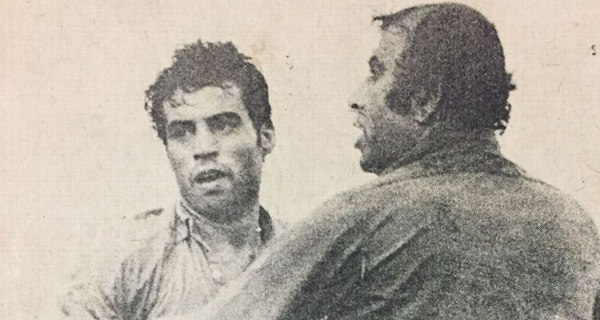CALCUTTA (India): In Indian football, none attracted multiple glossy coverages and media attention as Pradip Kumar Banerjee, who died at a city hospital here on Friday morning.
The legendary footballer and coach was 83.
The former India captain and coach was suffering from sepsis and multi-organ failure due to pneumonia on a background of Parkinson’s disease, dementia and heart problems.
Even former India team-mates Chuni Goswami and Tulsidas Balaram couldn’t match his persona – popular, energetic and excellent motivator.
PK, as he was popularly known in the fraternity, was hailed as one the well-known coaches in Indian football. He had churned out remarkable success for East Bengal, Mohun Bagan and the national teams.
“PK Banerjee is a large than life in Indian football,” former India and Mohun Bagan centre-back Subrata Bhattacharya told Khel Updates. “His contribution cannot be measured easily in terms of the trophies he won as a player or coach. He was a master tactician and helped a lot of young players like me.”

Subrata, like his master also coached Bagan, East Bengal and Mohammedan Sporting.
“I met him at the beginning of my football career. I’ve learnt a lot from him when he was Bagan coach. None could match his passion and energy. I’m grateful to him for what I’m today,” added the 67-year-old.
PK was a Padma Shri awardee and a member of the 1956 Olympics team that finished fourth.
“Very few successful footballers became a successful coach. But Pradipda was able to break that myth,” said Subrata.
Banerjee, who became a top-notch coach after his playing days, was also one of the top stars in the Indian team that won the Asian Games gold in Jakarta in 1962.
One of his favourite protégés Manoranjan Bhattacharya also expressed his heartfelt condolences to the departed soul.
“Pradipda is one of the legends in Indian football. He was an encyclopedia. Indian football has had several top stars, but his charisma puts him ahead of the rest,” said Manoranjan.
Former India goalkeeper Bhaskar Ganguly felt that ‘footballer PK’ outsmarted his coaching contributions.
“He was one of the guardians of Indian football. I can’t explain how great he was as a coach with his ‘vocal tonic’ became popular. But I want to give more credits to him as a footballer because he played for Eastern Railway and still remained a top-notch star,” said Ganguly.
In the later part of his coaching career, Banerjee was appointed as Mohammedan Sporting technical director in 2003.
In his several historic moments, the erstwhile star also travelled as the technical director with the national team to England in 2000 which was India’s first visit since 1948 London Olympics.
“Pradipda was the one who motivated me to become a successful central defender at East Bengal,” said Manoranjan.
“His contribution to Indian football was more than what Chunida or Balaramda did as they didn’t coach any top sides after their retirement.”
Asked on the comparison between PK with his staunchest rival Amal Dutta, Ganguly said, “Amalda’s contribution to my life has been much greater than that of Pradipda. I became ‘Bhaskar Ganguly’ due to Amalda particularly after conceding five goals against East Bengal. Amalda encouraged me to become the number one goalkeeper in the country. I played best matches in under Pradipda, but Amalda read my mind better.”
Bollywood actor Ajay Devgn, who is playing the role of Syed Abdul Rahim in the biopic dedicated to the legendary India coach, met Banerjee.
Devgn, who visited the city recently, said that meeting Banerjee was an emotional experience.











